第146章 CHAPTER IX.(1)
The Queen having been robbed of her purse as she was passing from the Tuileries to the Feuillans, requested my sister to lend her twenty-five louis.
[On being interrogated the Queen declared that these five and twenty louis had been lent to her by my sister; this formed a pretence for arresting her and me, and led to her death.--MADAME CAMPAN.]
I spent part of the day at the Feuillans, and her Majesty told me she would ask Potion to let me be with her in the place which the Assembly should decree for her prison. I then returned home to prepare everything that might be necessary for me to accompany her.
On the same day (11th August), at nine in the evening, I returned to the Feuillans. I found there were orders at all the gates forbidding my being admitted. I claimed a right to enter by virtue of the first permission which had been given to me; I was again refused. I was told that the Queen had as many people as were requisite about her. My sister was with her, as well as one of my companions, who came out of the prisons of the Abbaye on the 11th. I renewed my solicitations on the 12th; my tears and entreaties moved neither the keepers of the gates, nor even a deputy, to whom I addressed myself.
I soon heard of the removal of Louis XVI. and his family to the Temple.
I went to Potion accompanied by M. Valadon, for whom I had procured a place in the post-office, and who was devoted to me. He determined to go up to Potion alone; he told him that those who requested to be confined could not be suspected of evil designs, and that no political opinion could afford a ground of objection to these solicitations. Seeing that the well-meaning man did not succeed, I thought to do more in person; but Petion persisted in his refusal, and threatened to send me to La Force.
Thinking to give me a kind of consolation, he added I might be certain that all those who were then with Louis XVI. and his family would not stay with them long. And in fact, two or three days afterwards the Princesse de Lamballe, Madame de Tourzel, her daughter, the Queen's first woman, the first woman of the Dauphin and of Madame, M. de Chamilly, and M. de Hue were carried off during the night and transferred to La Force.
After the departure of the King and Queen for the Temple, my sister was detained a prisoner in the apartments their Majesties had quitted for twenty-four hours.
From this time I was reduced to the misery of having no further intelligence of my august and unfortunate mistress but through the medium of the newspapers or the National Guard, who did duty at the Temple.
The King and Queen said nothing to me at the Feuillans about the portfolio which had been deposited with me; no doubt they expected to see me again. The minister Roland and the deputies composing the provisional government were very intent on a search for papers belonging to their Majesties. They had the whole of the Tuileries ransacked. The infamous Robespierre bethought himself of M. Campan, the Queen's private secretary, and said that his death was feigned; that he was living unknown in some obscure part of France, and was doubtless the depositary of all the important papers. In a great portfolio belonging to the King there had been found a solitary letter from the Comte d'Artois, which, by its date, and the subjects of which it treated, indicated the existence of a continued correspondence. (This letter appeared among the documents used on the trial of Louis XVI.) A former preceptor of my son's had studied with Robespierre; the latter, meeting him in the street, and knowing the connection which had subsisted between him and the family of M. Campan, required him to say, upon his honour, whether he was certain of the death of the latter. The man replied that M. Campan had died at La Briche in 1791, and that he had seen him interred in the cemetery of Epinay. "well, then," resumed Robespierre, "bring me the certificate of his burial at twelve to-morrow; it is a document for which I have pressing occasion." Upon hearing the deputy's demand I instantly sent for a certificate of M. Campan's burial, and Robespierre received it at nine o'clock the next morning. But I considered that, in thinking of my father-in-law, they were coming very near me, the real depositary of these important papers. I passed days and nights in considering what I could do for the best under such circumstances.
I was thus situated when the order to inform against those who had been denounced as suspected on the 10th of August led to domiciliary visits.
My servants were told that the people of the quarter in which I lived were talking much of the search that would be made in my house, and came to apprise me of it. I heard that fifty armed men would make themselves masters of M. Auguies house, where I then was. I had just received this intelligence when M. Gougenot, the King's maitre d'hotel and receiver- general of the taxes, a man much attached to his sovereign, came into my room wrapped in a ridingcloak, under which, with great difficulty, he carried the King's portfolio, which I had entrusted to him. He threw it down at my feet, and said to me, "There is your deposit; I did not receive it from our unfortunate King's own hands; in delivering it to you I have executed my trust." After saying this he was about to withdraw.